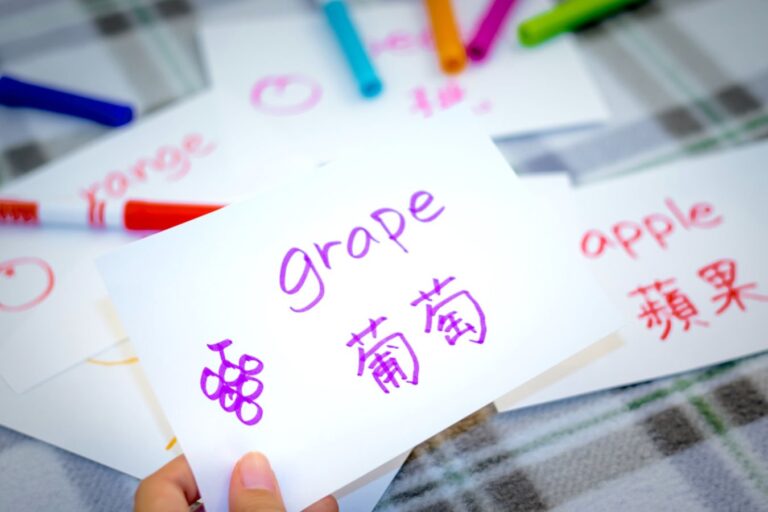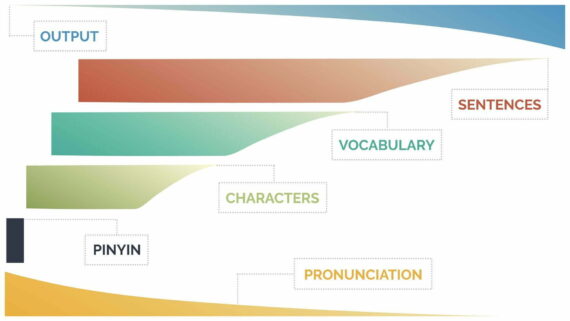SRS: How To Use Spaced Repetition Software To Learn Chinese Effectively

Whichever way you slice it, you’ll need to learn a lot of new pieces of information to become fluent in Mandarin. You are creating an entire foundational structure at this stage, and the components, characters, words, and grammar, are all brand new to you. Thankfully, Spaced-Repetition Software (SRS) makes the process of remembering much more straightforward than it used to be.
SRS uses an algorithm that makes sure you see newer flashcards more frequently, and older information less often. It exploits the spacing effect to make the learning process many times more efficient. Think paper flashcards on the most illegal steroids available. Here are the most important things to know about SRS:
SRS is NOT a Learning Tool, It Is a Reviewing Tool
Before I had my breakthrough realization of the importance of comprehensible input, I wasted many hours using all kinds of methods that didn’t work. One of my biggest wastes of time was ‘learning’ 5,000 words using very fancy-looking digital SRS flashcards.
When I was ‘learning’ those 5,000 words, I didn’t know how to use the words in context, their characters, or the components that made up the characters. I was merely recognizing the shape of the squiggles and linking that to a single definition.
I even had decent mnemonic images to help recall this definition, but that only made it easier to recall that particular flashcard. My recall was excellent; I just lacked understanding, which meant I couldn’t apply anything I had learned.
SRS merely keeps what you have already understood in your mind long enough for it to become a long-term memory. That’s it. It is a tool for reviewing, not a tool for learning. As a result of my shallow and muddled approach, I forgot most of what I learned after a few months of not reviewing, and I couldn’t apply the information in a useful way.
I was rote learning for a long time without knowing it. You must learn the information first, then use SRS to review it. Reviewing without learning is just rote learning, which is, as you know, very bad. To avoid this same trap, take the following precautions next time you go to review:
- Character flashcards: make sure you know at least one common meaning for the character, how to pronounce it, and preferably how to write it.
- Vocabulary flashcards: you must know the characters, the pronunciation, and at least one common definition.
- Sentence/paragraph flashcards: you should know at least 90% of the words in the sentence, so you can understand the message of it.
If you can meet these basic requirements, then you understand the information well enough to review it. If not, then perhaps you should correct or deepen your understanding first before reviewing it.
You MUST Finish Your Reviews Every Single Day
SRS promises a retention rate of 90-95% with daily use. The algorithm isn’t smart enough (yet) to know if you have missed days or not, so if you miss too many days, you will start to get things wrong.
You will also end up with an intimidating build-up of cards if you do not stay on top of things. Don’t be intimidated by this “no zero days” requirement. If you find yourself overwhelmed with how many reviews are due each day, simply add fewer new cards each day, and the burden will ease naturally.
Getting Things Wrong is Not Inherently Bad
Whenever you get a card wrong, it means one of the following:
- Your card could be improved – Perhaps you could add some different media to make it more memorable. Maybe the mental connections you made or the images you used need to be more closely related to the meaning.
- Your understanding is lacking – Do you know this character/ word/sentence according to the standards I laid out in point 1. above?
Remember, you will answer incorrectly 5-10% of the time, but getting 90-95% correct answers is still fantastic. Not only that, you only got the card wrong this time. After some tweaks, you will likely remember it next time, which (thanks to the algorithm) will be very soon.
You Don’t Need to Use Flashcards Forever
I like to see SRS flashcards as a hyper-efficient shortcut from the unknown to long-term knowledge.
Once you are an intermediate or advanced learner, you can stop reviewing sentences or words individually and start focusing on real content. Reading and Listening is the best form of Spaced repetition because you naturally see more common (and therefore more important) words more often.
As long as you read and listen a lot to reasonably modern content around your level, you will pick up useful words and phrases all the time. An exception to this would be if you had to learn a lot of specialist vocabulary quickly.
If I wanted to improve my business Mandarin, for example, I would ‘mine’ for high-quality example sentences that contain the words I wanted to learn and start reviewing them with SRS.
Set Realistic Goals and Don’t Burn Out
Because flashcards are such an efficient way of reviewing information, it’s easy to get carried away and add way too many new cards at first. The best approach is to start with a small number of new cards each day (say, twenty) and try it for a few days.
Once you feel like you can take on more, increase the amount by small increments week by week until you think you have reached your limit. Remember that flashcards, while important, are not your only learning activity. Make sure to leave enough time and energy for other things.
How to Create Incredible SRS Flashcards
As well as the above steps, there are some things you should try to include in your flashcards to make them more useful and engaging.
Images and Overall Design
Images are essential for word cards and can also add even more context to sentence cards.
You could also include different colors, fonts, and even GIFs to make the whole reviewing process clearer and more entertaining.
Add Audio to Your SRS Flashcards
You are learning a language, so it is ideal to hear the native pronunciation of everything you review.
Every single one of our flashcards contains both male and female native audio for this reason. If you are making flashcards and don’t have access to a recording studio, you can use the add-on
Awesome TTS to get automated audio for any text, with great accuracy.
You can also record your voice (or that of your tutor) by hitting “R” while reviewing.
Use Cloze Deletes
This will make reviewing sentence cards longer, but it tests your vocabulary and grammar knowledge with more rigor and precision. I would recommend cloze deletes to beginners and intermediates, whereas more advanced learners might find it unnecessarily labor-intensive.
Add Notes
Don’t go crazy with this one, but making little notes in a field on the back of your cards can be very useful. You can use notes to record your “living link” to words, alternative definitions or pronunciations, or why you chose an image that seems irrelevant at first glance.
I really like copying and pasting multiple definitions of words from dictionaries, which usually include example sentences.
Some Examples of Awesome Flashcards
Why these SRS flashcards rock
All of the flashcards above contain native audio and an image to strengthen the mental connection. The character flashcard also gives you a reminder of stroke order for an added benefit. The sentence flashcard uses a cloze delete function, too. These cards can be a pain to make, which is why we’ve made them for you! All of these are card types available at different phases of The Mandarin Blueprint Method. Gain full access by signing up for Mandarin Blueprint here.








